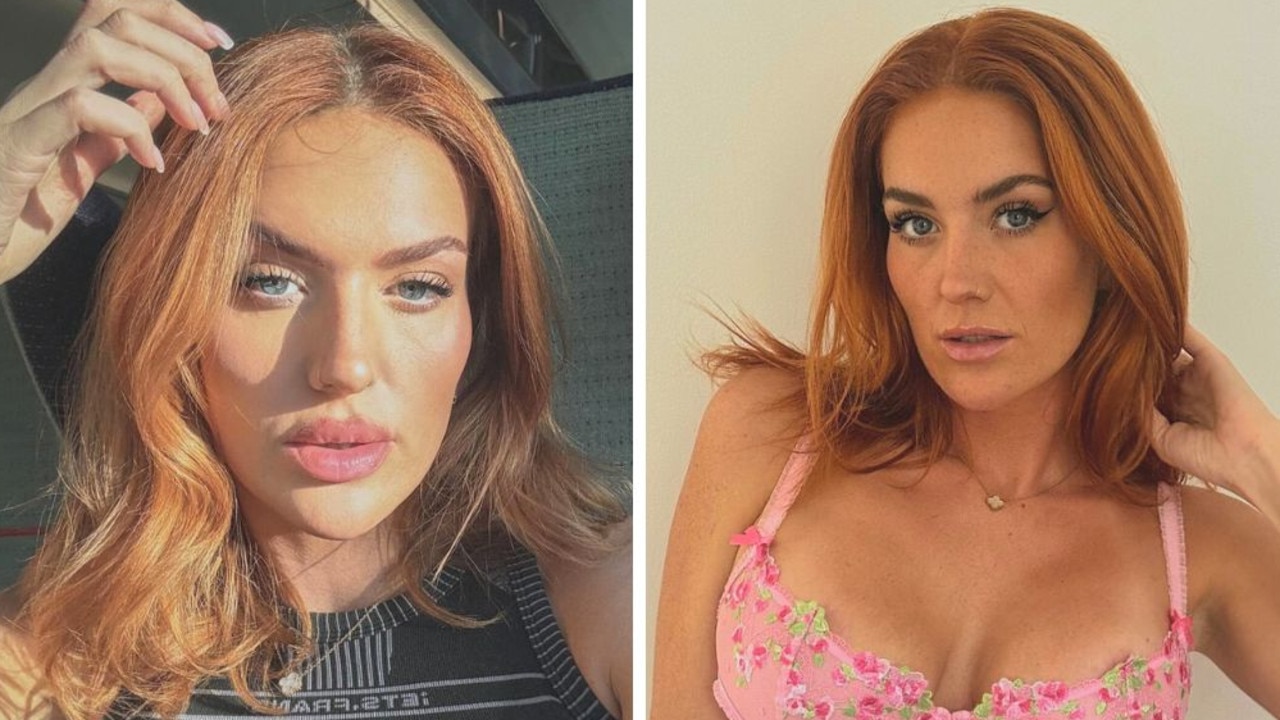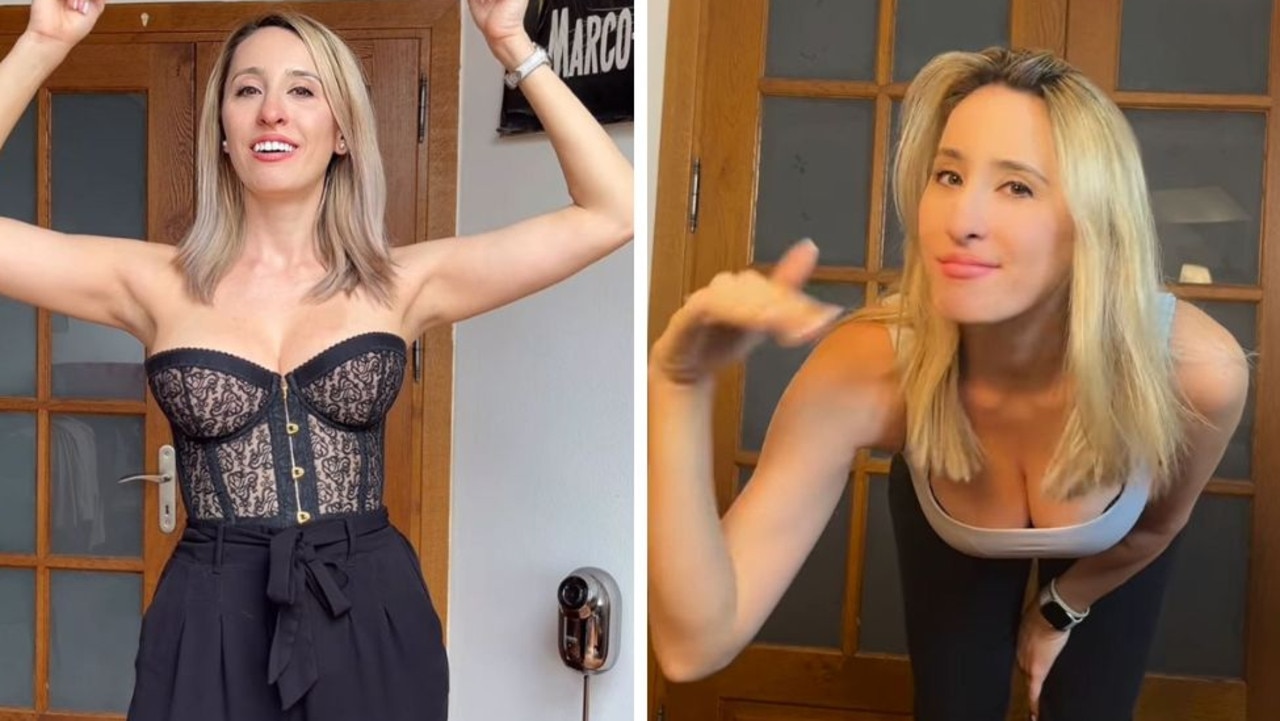‘Little-known’ Love Island feature sparks debate
With the finale airing soon, a former contestant has revealed a little known detail of the show that has been hiding in plain sight.
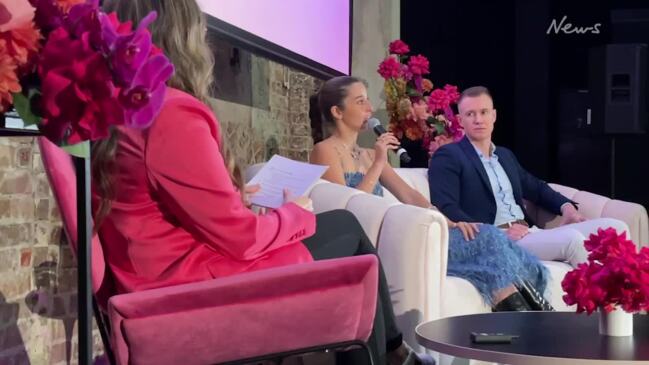
Sex
Don't miss out on the headlines from Sex. Followed categories will be added to My News.
As the Love Island Australia finale approaches, former contestant Georgia Murray has revealed a little-known detail of the show that aims to make participants feel safer.
Introduced in 2023, the “consent button” is located on either side of each bed, and is a tool for signalling mutual consent in the bedroom once the lights are switched off.
When both partners press their respective buttons, a love heart lights up above their bed, indicating to producers and viewers that there is consent for intimate activities.
Islanders are only allowed to start kissing after both buttons are pressed and both halves of the heart are switched on.
Ms Murray explained to news.com.au how the consent process works, saying it must be pressed before kissing, cuddling and “anything happening underneath the covers that producers can’t see”.
“The main rule was if you can’t see your hands, it’s better to just press the button,” she said.
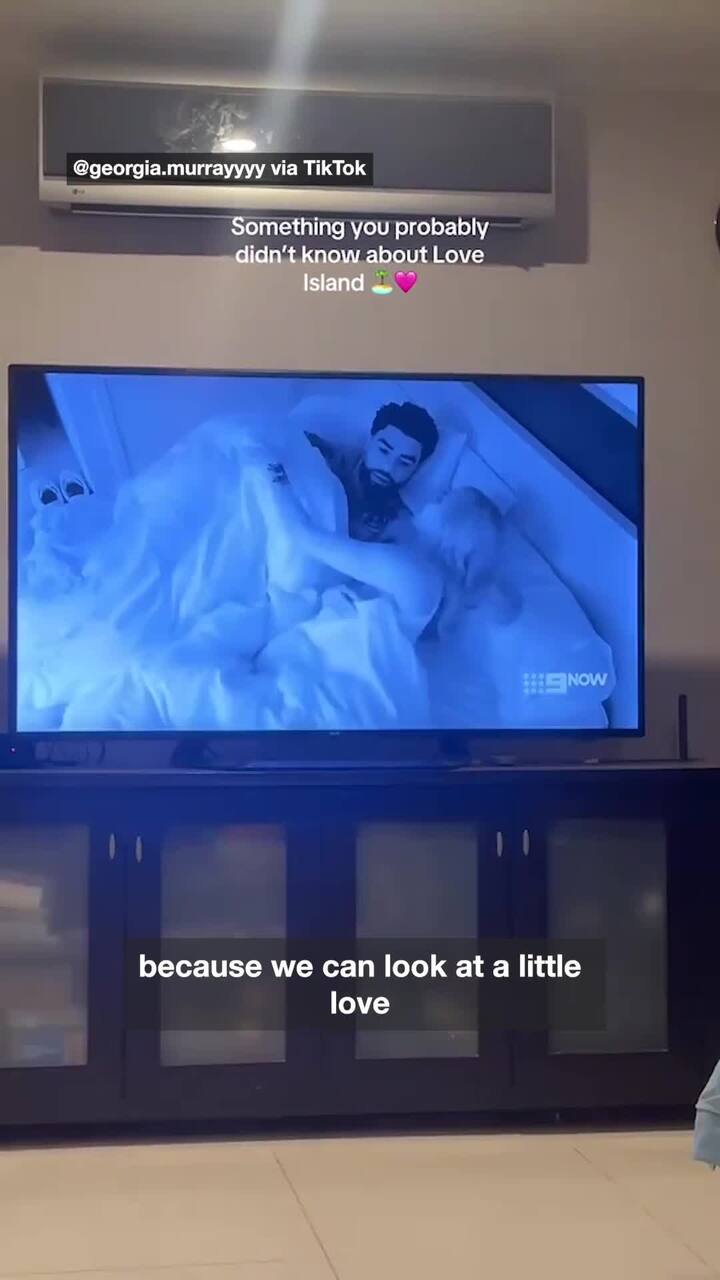
Despite not being able to see the infrared love heart, each contestant is aware of their partner’s consent status as the button visibly stays down once pressed, and they also must tell each other when their buttons are pushed.
In instances where one contestant may attempt something without consent, she says producers are quick to intervene.
One time on the show, she and her partner Nate were told to press the button after the producers couldn’t see their hands.

“They came into the room with a flashlight and told us we needed to either press the button or keep our hands above the sheets.”
She said these measures helped her feel “protected” when getting into bed with a “stranger”.
Fellow contestants also liked the button, often using it playfully as a way to show their partner they were “down” to do something that night.
In areas of the villa without a button, like the hideaway or day beds, contestants are required to verbally express their consent by saying, “I consent,” into their microphones.
“It was very awkward but I think producers definitely covered all bases when it came to consent,” she laughed.
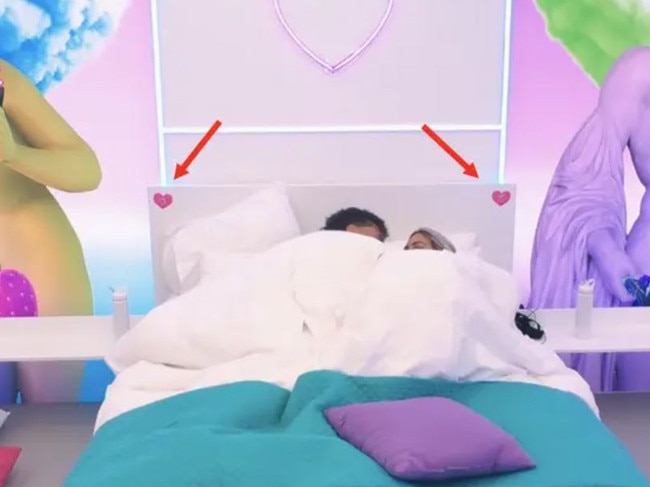
Producer explains the various ways contestants are taught about consent
According to ITV Studios Australia’s Executive Producer, Alex Mavroidakis, the buttons are just one way contestants are taught to seek consent.
Those in the villa have been instructed during their pre-show briefings that they also need to obtain verbal consent from one another before engaging in anything sexual.
If an islander attempts something without pressing the button, Mr Mavroidakis says the show uses a tannoy system they call the “Voice of God,” where producers intervene by calling out to remind contestants to confirm consent.
“They generally do not forget more than once because it is horribly embarrassing to have your name called out and they all start laughing!” he said.
Prior to entering the villa, each contestant also receives a copy of the Villa Guidelines, which includes an explanation of the consent heart system.
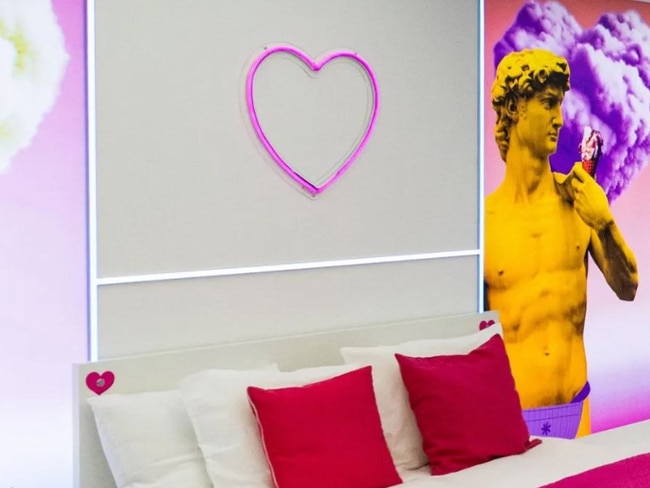
He ensures that he meets with each Islander the day before they enter the villa to clarify the importance of the system and how to use it properly.
The introduction of the consent hearts was very much a “proactive” measure, he assures, and nothing negative happened to prompt its implementation.
“On Love Island, we have young couples sharing beds and we want to be certain that their welfare is looked after at all times,” he said.
In addition to this, contestants have access to ongoing psychological support during their time on the reality show.
“Every Islander meets with the show’s psychologist before, during and after their experience,” he said.
“During these meetings, they are constantly reminded to respect each other and never assume consent.
“Of course, just because you have your heart on doesn’t mean you are giving a green light for anything to happen. Islanders are constantly reminded to ask each other ‘Are you okay with this?’ and to wait for an affirmative response.”
The show also has very strict alcohol rules in place which means Islanders are limited to two units of alcohol per day so they can make “smart choices” not “alcohol-affected” choices.
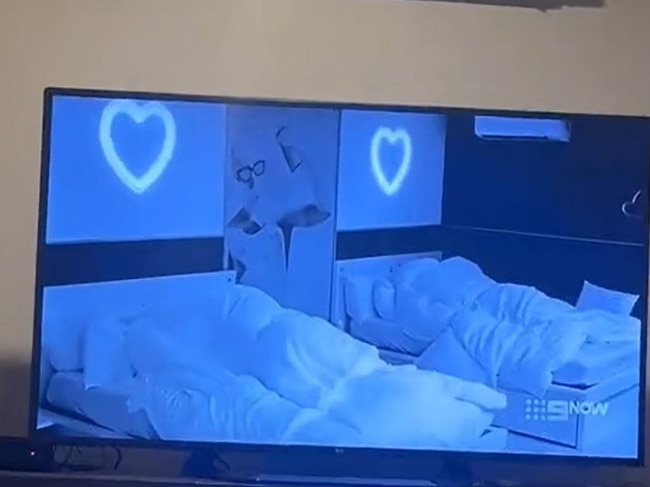
Consent expert says it’s a “good start” but more could be done
A spokesperson for Teach Us Consent, an NGO founded by Chanel Contos to promote change around the issue of consent, told news.com.au that they think it’s “fantastic” to see conversations around consent being taken out of educational contexts and into the real world.
They recognised that while the consent buttons are a good starting point and appreciate the intent behind them, they emphasised that consent is an ongoing process.
“Consent isn’t as simple as a set-and-forget contract or pushing an illuminated button on a wall,” they said. “Anyone can withdraw consent at any point, for any reason at all. Basically, consent to making out earlier in the night doesn’t equal consent to having sex later in the night.
“If the vibe changes and someone isn’t keen to continue, ideally, instead of rolling over and pressing a button on or off, people are empowered to verbally communicate about that.”
They also noted that consent is inherently specific, meaning participants should explicitly communicate what each person is down for, or else “consent isn’t being properly practised”.
The spokesperson said they hoped to see more discussions on the show about consent, boundaries, and respect, in the future.
They believe it’s a great opportunity for both the cast and crew to explore the nuances of consent with a wide audience, many of whom may be navigating their own experiences with sex and relationships.
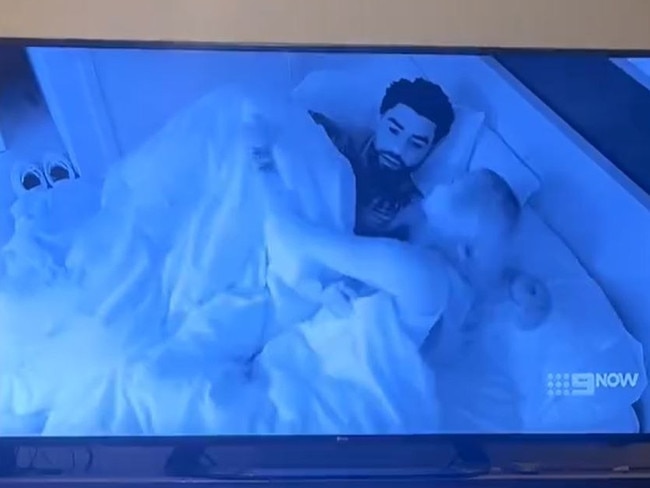
The discussion highlights the ongoing issue of consent affecting young people in Australia.
Sexual violence continues to be a major concern, supported by the 7,000 testimonies of sexual assault collected by the Teach Us Consent campaign.
Harrowing statistics indicate that one in five women and one in 16 men have experienced sexual violence since the age of 15.
While consent education is now mandated in the national curriculum, the spokesperson argued that further work is needed to normalise a culture of consent, with reality TV shows an ideal platform to bring these conversations to the mainstream.
“It would be great to see entire episodes dedicated to consent, establishing both for contestants and viewers the principles of consent and encouraging more conversations about it throughout the series,” they said, suggesting that the topic could be woven into some of the games on the show.
How to ask and give consent
In everyday interactions, the spokesperson provided several effective methods for asking for and giving consent.
“There are countless ways to make sure everyone is keen, ready and feels comfortable and confident asserting their own desires and boundaries,” they said.
“When practising consent, verbally asking is the best and most simple way to do it, and it doesn’t have to be clunky or a mood killer. Simply asking ‘Can I kiss you?’, ‘Can I ____?,’ or ‘Are you still into this?’ leaves very little room for misunderstanding and makes sure everyone’s on the same page.
“The absence of a clear ‘no’ doesn’t mean you’ve got consent – if you receive silence or have to try to convince someone, don’t pressure them. If they want to, they’ll tell you!”
Originally published as ‘Little-known’ Love Island feature sparks debate




